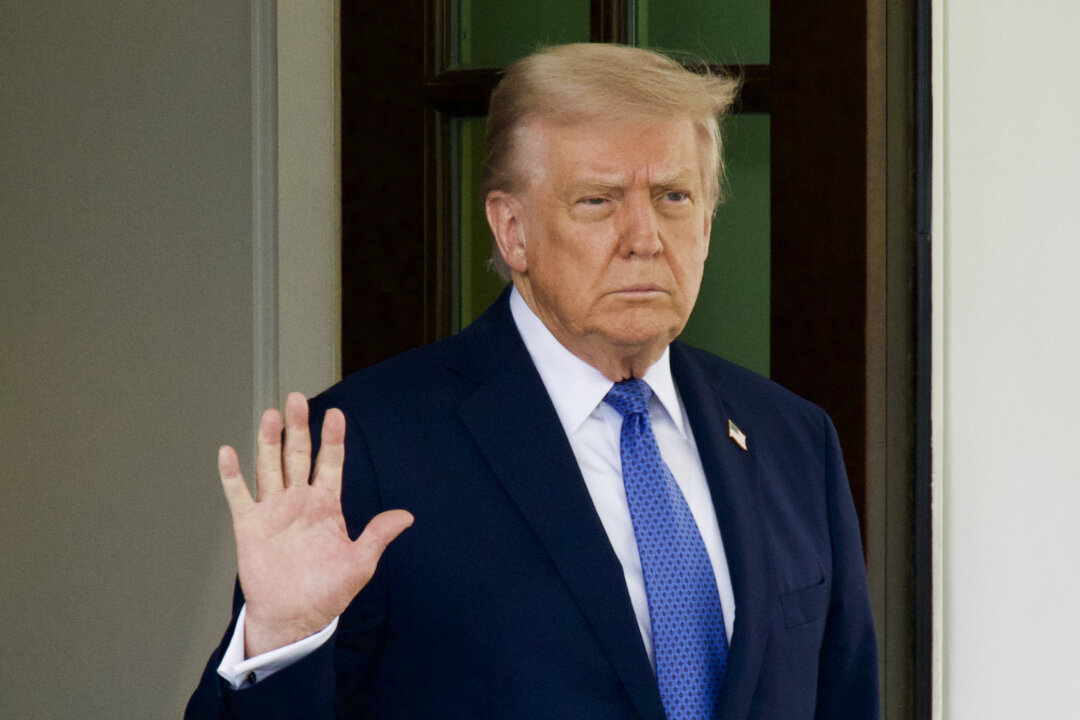The memo follows a congressional inquiry into ActBlue, the Democratic Party’s primary fundraising platform.
WASHINGTON—A new presidential memorandum from the White House aims to crack down on unlawful foreign contributions and money funneled to electoral campaigns using identity theft schemes to evade federal laws.
“Notwithstanding these laws designed to protect American democracy, press reports and investigations by congressional committees have generated extremely troubling evidence that online fundraising platforms have been willing participants in schemes to launder excessive and prohibited contributions to political candidates and committees,” said President Donald Trump’s April 24 memo.
The move follows a congressional investigation that identified potentially unscrupulous activity on online fundraising platforms, including ActBlue—the Democratic Party’s primary fundraising arm.
Attorney General Pam Bondi is directed to investigate allegations and to report all findings to the president within 180 days.
The new directive is meant to protect democratic functions by targeting malicious activities that could influence U.S. elections.
The Democratic Party pushed back on the new order and allegations of fraud.
“Donald Trump’s memorandum targeting ActBlue is designed to undermine democratic participation, and it’s no wonder why,” the party said in a statement. “As Democrats, we’re unified in standing with the millions of Americans who are fighting back against Trump’s dangerous abuses of power.”
According to the recent congressional inquiry, hundreds of donations submitted with prepaid credit cards to ActBlue’s website came from foreign internet addresses during a one-month period of the 2024 election campaign.
Existing regulations specifically prohibit foreign nationals from donating to elections in the United States.
Other concerns include the alleged use of so-called “straw donors,” where money is donated using false names or with stolen identities to avoid campaign finance laws.
Some victims of the scheme found their names on donation lists and took the information to social media to sound the alarm.
“Maybe now someone can explain why donations were made, in my name, to ActBlue candidates in Kansas, when I’ve never been to Kansas,” Matt Van Swol, former nuclear scientist for the Department of Energy, posted April 24 on the social media platform X. His post includes a screenshot of a redacted document that appears to show ActBlue’s donation filing records with his full name.
Federal law prohibits making campaign donations in another person’s name.
Recent investigations in the House of Representatives show some contributions split into smaller donations. The Trump administration alleged that they are evasive maneuvers to avoid federal laws that limit amounts given by a single individual.
According to the House inquiry, ActBlue instructed employees to “look for reasons to accept contributions,” instead of scrutinizing activity to ensure compliance with federal law.
Insufficient security standards on ActBlue and other websites are allowing unverified donations and fraudulent activity to proliferate, according to the memorandum.
State attorneys general from across the country are also looking into allegations that some contributions were made using untraceable methods.
Trump on the campaign trail promised to safeguard the electoral process. He signed an executive order in March titled, “Preserving and Protecting the Integrity of American Elections.”
“We’re going to fix our elections so that our elections are going to be honorable and honest,” Trump said in a statement at the time. “We will secure our elections, and they will be secure once and for all.”
ActBlue did not respond to The Epoch Times’ request for comment before publication.
The organization has denied wrongdoing and vowed to strengthen its donation security protocols after the states of Virginia and Texas, among others, initiated investigations into the platform late last year.
“This investigation is nothing more than a partisan political attack and scare tactic to undermine the power of Democratic and progressive small-dollar donors,” the group said in an August 2024 statement.

